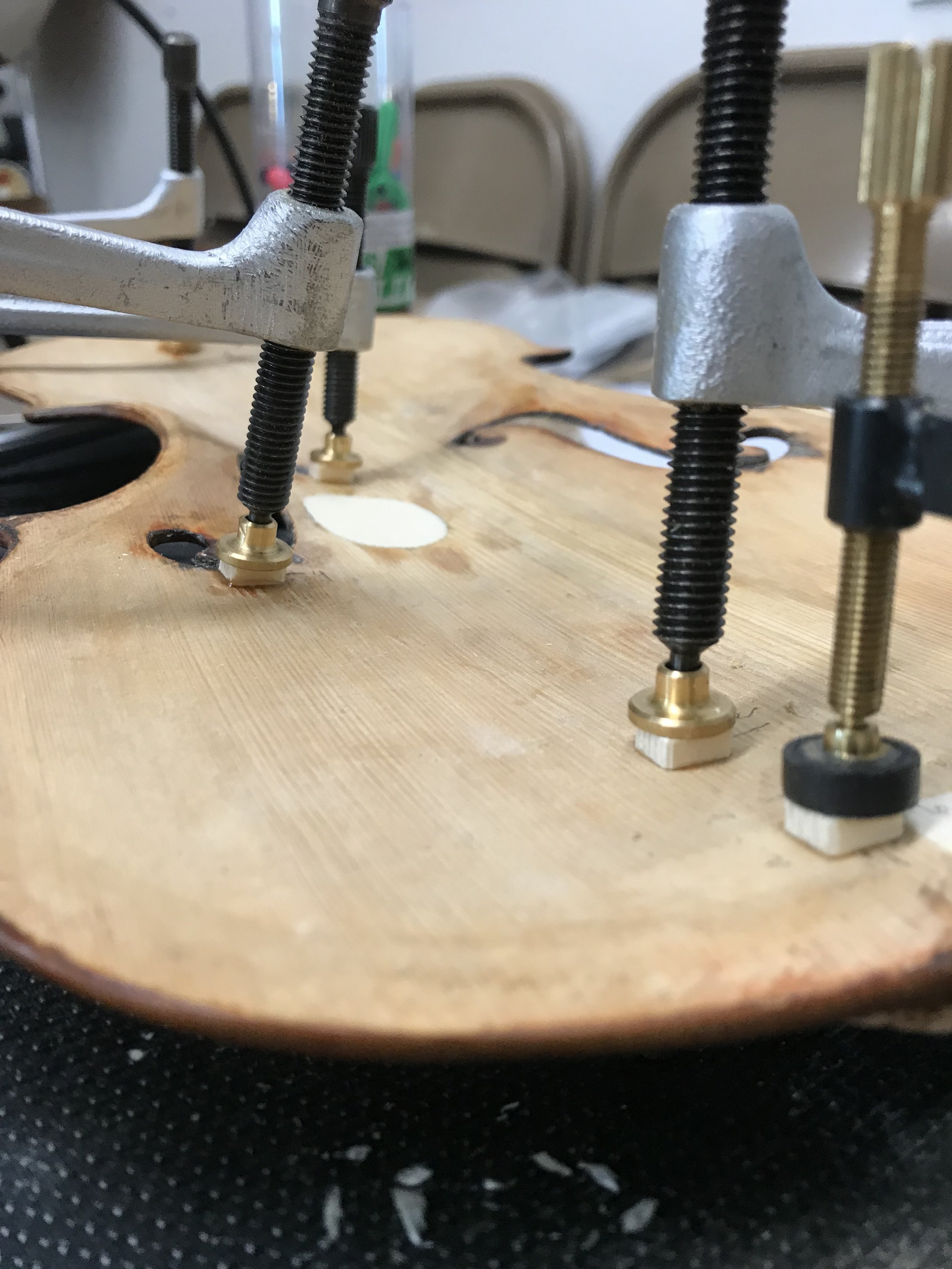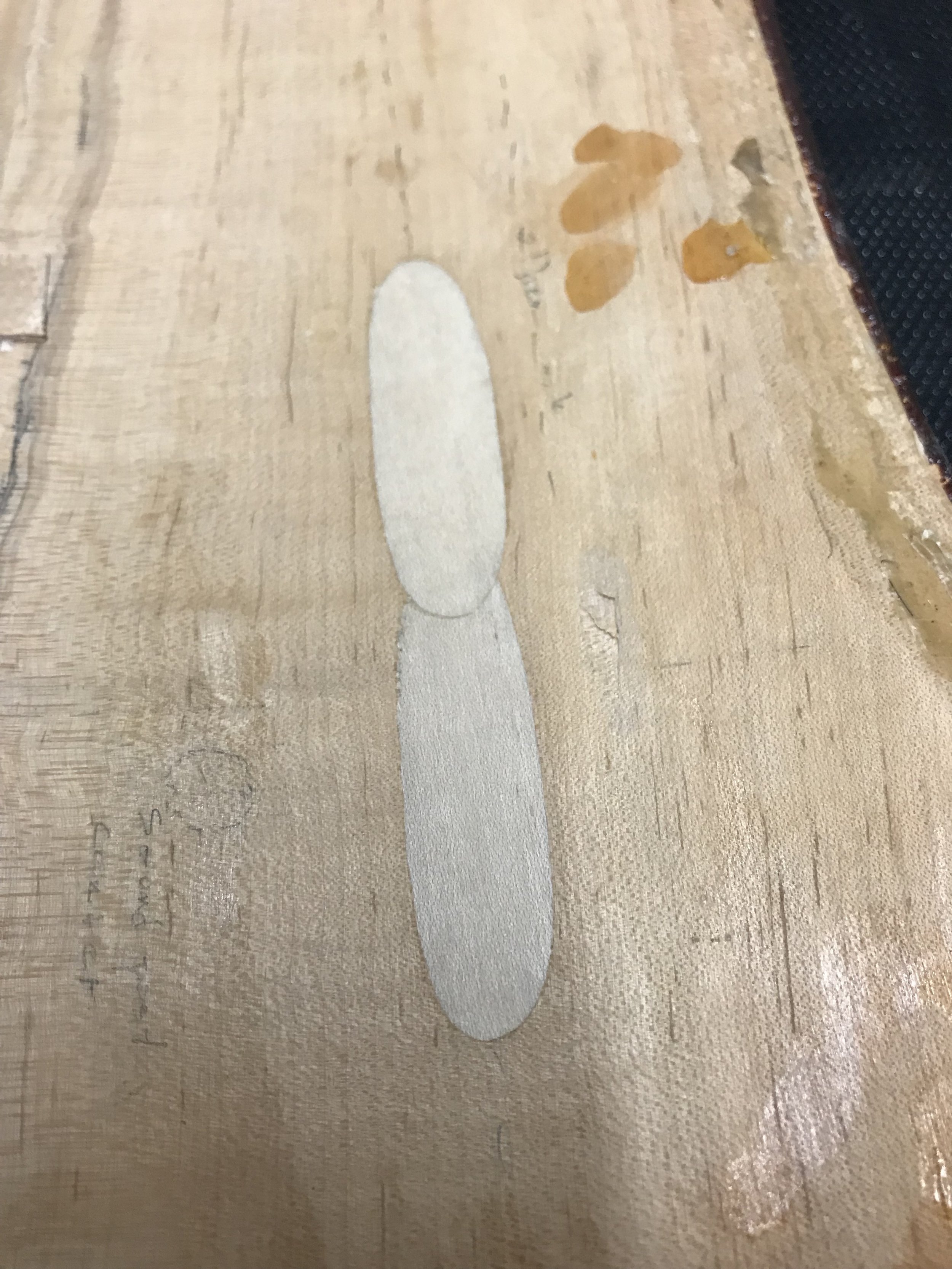Repairs and Maintenance
Mike is trained to conduct set up and routine repairs. His training is with Sanghoon Lee at the Violin Making School of America, the Peter Prior and Sons shop in Salt Lake City, through joint work with Jeff Robinson in Flagstaff, and through internships with Triangle Strings in Raleigh, NC.
Mike prefers not to tackle major restoration projects, leaving this work to experts.
But bring your bridge, sound post, seams, peg, and other routine issues to Mike for prompt, excellent resolution.
The gallery below shows some of Mike’s more complex repairs.
Violin Top Repair
This violin top had a number of small cracks, a really bad previous sound post crack repair, and a damaged lower block area. In addition it had a badly distorted ff hole wing. The previous patch was removed, a new sound post patch was placed, cleats were placed, the lower block area was doubled, and the ff hole wing distortion was pressed out. An unusual “press from the outside” technique was tried successfully. A neck graft is in progress to complete the work on this violin.





Cello Back Sound Post Crack
A cello with a sound post crack on the back is a demanding repair. The repair must hold the point load of the sound post, like the original back did. This cello had a long sound post crack that required 2 overlapping patches and numerous cleats for a strong repair.
First, the crack was closed and glued.
A first patch block was fit and glued.
A second patch was fit.
The finished patch. A series of cleats was also added to further reinforce the crack
Broken Cello Neck Foot
Cello necks are frequently broken, especially on student cellos. A number of quick repairs are possible, but the best repair is a wooden pin placed in the neck to reinforce the glued break. A tapered pin allows for a tight fit and tight surface contact between the pin and the neck.
With the fingerboard removed, the break in the neck is glued and clamped. Then a hole is drilled and reamed with a peg reamer to form a tapered hole. A matching pin is shaped on the peg shaper and glued into the hole.
The pin is planed flush with the neck surface and the fingerboard is replaced.





